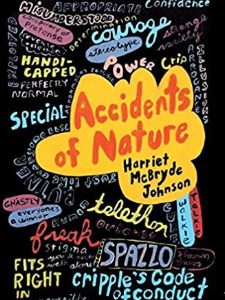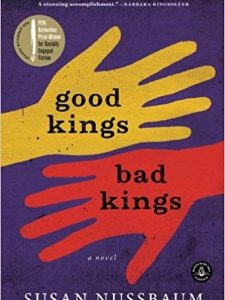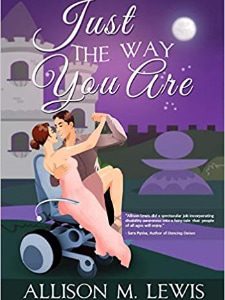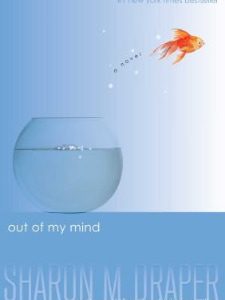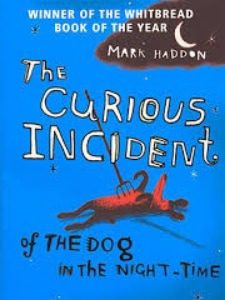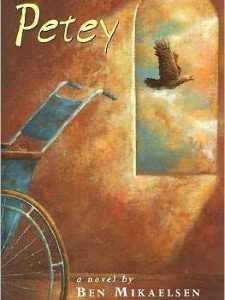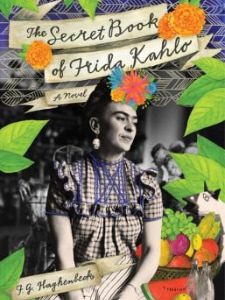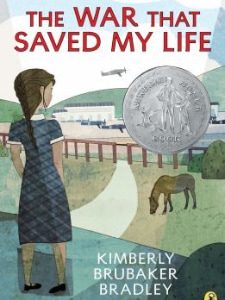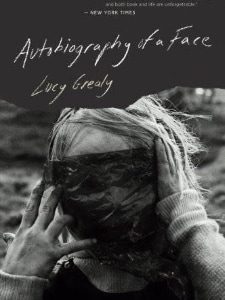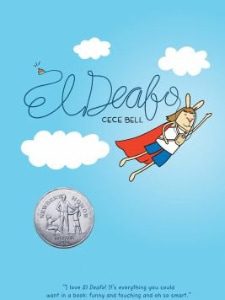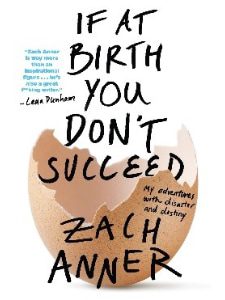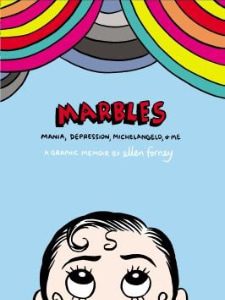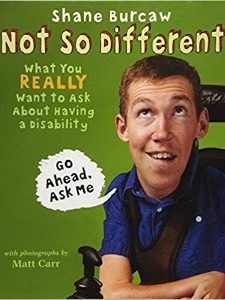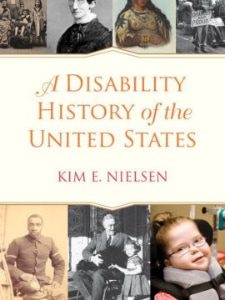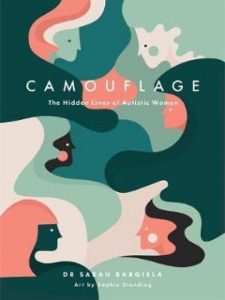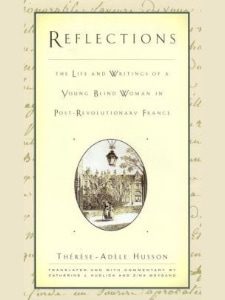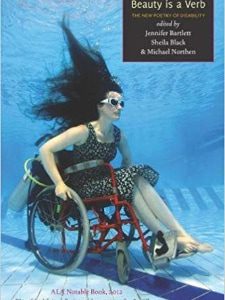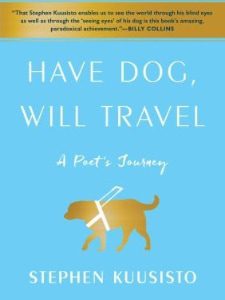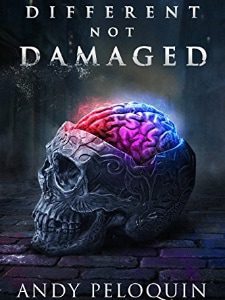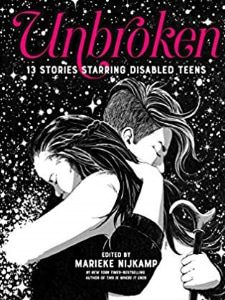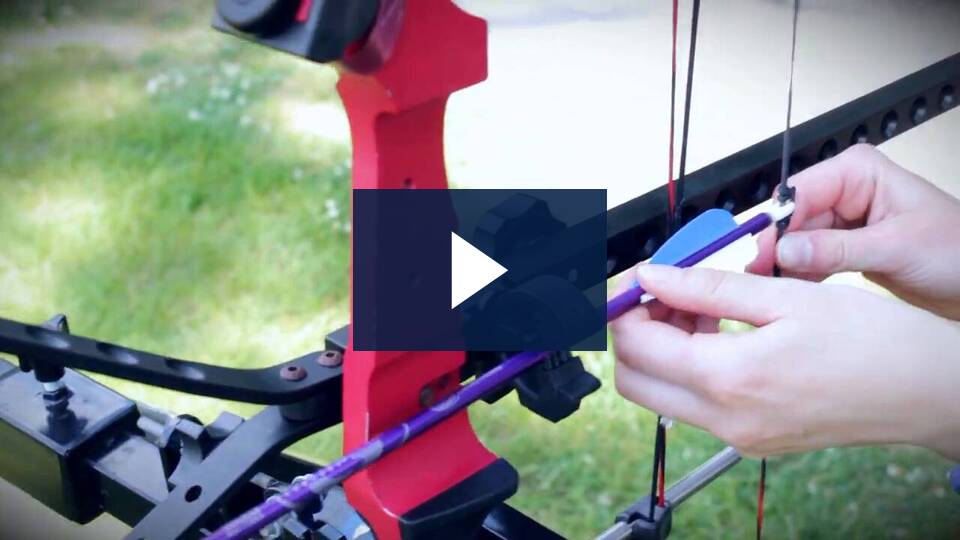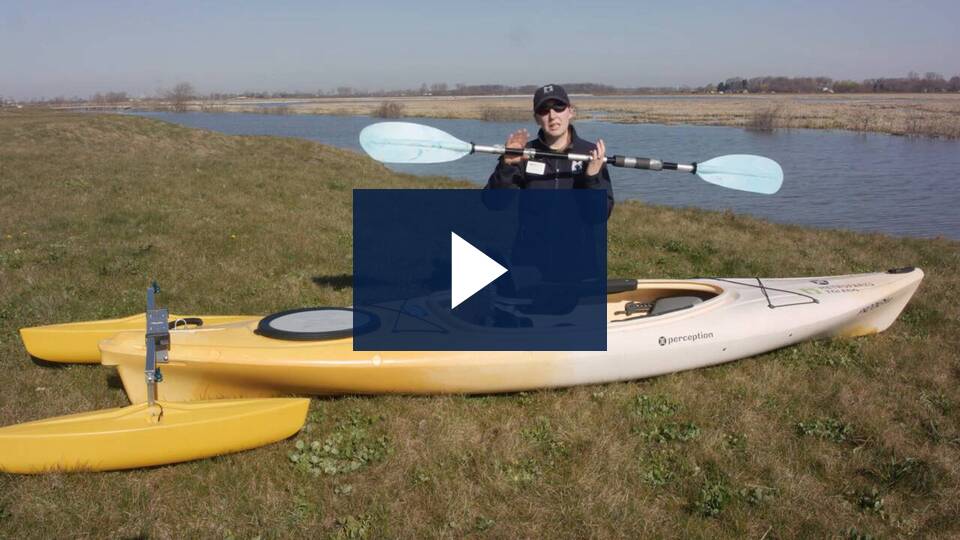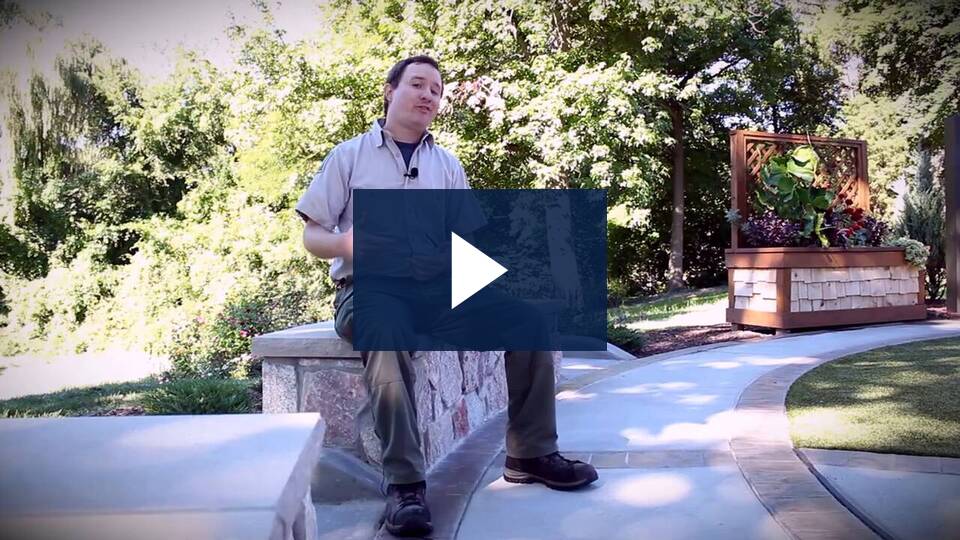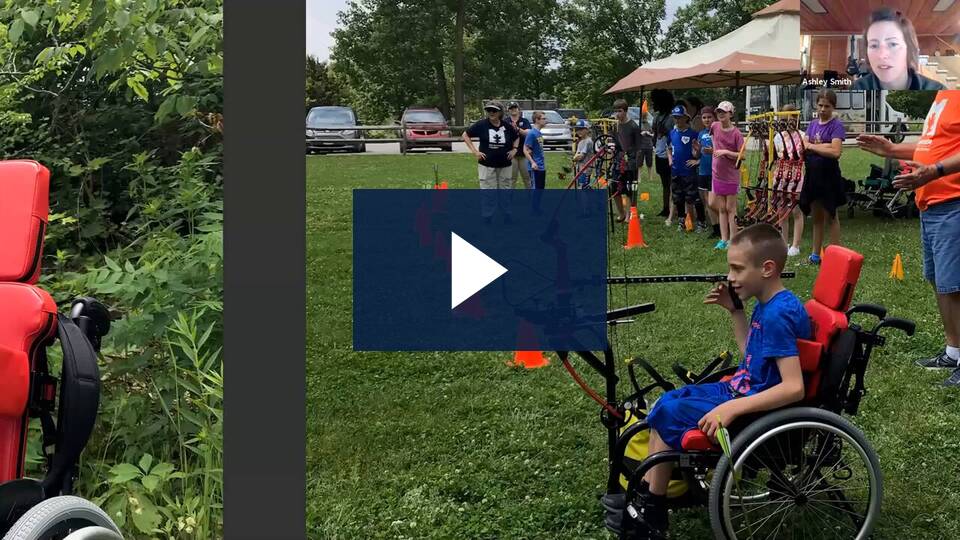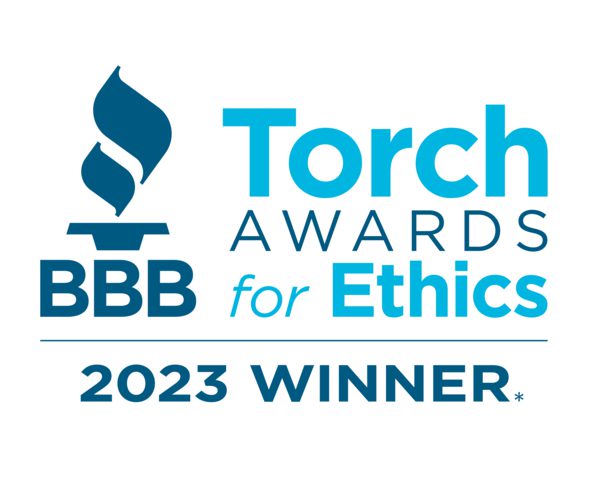The Ability Center staff has compiled—and updates regularly—this list of resources. We have organized the information by the interest areas listed on the left. You can click on a title to advance directly to that section.
HOW TO SEARCH THIS PAGE
You can quickly search this page using your browser’s Find command. “Control+F” (or “Command+F” on a Mac) will open a search box in the upper right corner of the screen. You can then enter a keyword or phrase to locate where the text appears on the page.
Waivers and Funding
Summer Youth Programs Webinars
Guardianship
SSI and STABLE Accounts
Downloadable Resources
General Resources and Technical Assistance
ADA Transition Planning
Employment
ADA Facility Evaluations
Effective Communication
Housing
Transportation
Education
Interviews Regarding Public Access
Voting Resources
Service Animals
Reasonable Accommodations
Evaluate Your Facility
Business/Government Compliance
Churches
Hosting an Event
Financial Assistance
Website and Design Accessibility
The Ability Center and local advocates host a conversation with media outlets to discuss language, narrative and imagery of folks with disabilities. The purpose of the webinar is to create an open dialog for individuals to share how they want to be referred to in the media. View webinar of local advocates recorded August 26, 2021
Fiction
Accidents of Nature – Harriet McBryde Johnson
It’s the summer of 1970. Seventeen-year-old Jean has cerebral palsy, but she’s always believed she’s just the same as everyone else. She’s never really known another disabled person before she arrives at Camp Courage. As Jean joins a community unlike any she has ever imagined, she comes to question her old beliefs and look at the world in a new light. The camp session is only ten days long, but that may be all it takes to change a life forever.
Good Kings, Bad Kings – Susan Nussbaum
Bellwether Award winner Susan Nussbaum’s powerful novel invites us into the lives of a group of typical teenagers–alienated, funny, yearning for autonomy–except that they live in an institution for juveniles with disabilities. This unfamiliar, isolated landscape is much the same as the world outside: friendships are forged, trust is built, love affairs are kindled, and rules are broken. But those who call it home have little or no control over their fate. Good Kings, Bad Kings challenges our definitions of what it means to be disabled in a story told with remarkable authenticity and in voices that resound with humor and spirit.
Just the Way You Are – Alison M. Boot
Misty Miles, the princess of a faraway land known as Starryton, is like any other woman of her station – except for her disability. She has spent the majority of her 21 years high in a tower so that this, and the wheelchair that accompanies it, will remain a secret. Her parents’ fear of the monarchy appearing weak as a result of Misty’s condition necessitates this course of action. Their efforts to protect both Misty and the monarchy make her question her ability to do much of anything – forget about reigning over a kingdom. Like most princesses, Misty has a Prince Charming. Her love is Derrick Denison, prince of the neighboring kingdom of Mooncrest, who is a gifted dancer. Misty is unable to see Derrick because not only is she stuck in an inescapable room, but there’s also the matter of the long, as of yet unresolved, feud between the two families. This conflict caused the once beloved kingdom of Starrycrest to break apart into two separate kingdoms. The princess soon realizes that she must take matters into her own hands. She goes to Trovella, a troll rumored to grant wishes for a price. Misty’s wish takes her on an interesting journey. She not only stares down self-doubt while ensuring that her kingdom and the kingdom of her beloved prince do not pay the ultimate price, but also contends with the rage of feuding families. To make matters all the more complicated, the princess is also faced with the challenge of finding a little girl she encounters in the course of her journey, who also has a disability, a permanent family.
Out of My Mind – Sharon Draper
Eleven-year-old Melody is not like most people. She can’t walk. She can’t talk. She can’t write. All because she has cerebral palsy. But she also has a photographic memory; she can remember every detail of everything she has ever experienced. She’s the smartest kid in her whole school, but NO ONE knows it. Most people–her teachers, her doctors, her classmates–dismiss her as mentally challenged because she can’t tell them otherwise. But Melody refuses to be defined by her disability. And she’s determined to let everyone know it…somehow.
The Curious Incident of the Dog in the Nighttime – Mark Haddon
Christopher John Francis Boone knows all the countries of the world and their capitals and every prime number up to 7,057. He relates well to animals but has no understanding of human emotions. He cannot stand to be touched. And he detests the color yellow. This improbable story of Christopher’s quest to investigate the suspicious death of a neighborhood dog makes for one of the most captivating, unusual, and widely heralded novels in recent years.
For Kids
Historical Fiction
Petey – Ben Mikaelsen
In 1922, at the age of two, Petey’s distraught parents commit him to the state’s insane asylum, unaware that their son is actually suffering from severe cerebral palsy. Struggling to communicate with the people around him, Petey finds a way to remain kind and generous despite the horrific conditions in his new “home.” Through the decades, he befriends several caretakers but is heartbroken when each eventually leaves him. Determined not to be hurt again, he vows to no longer let hope of lifelong friends and family torment him.
That changes after he is moved into a nursing home and meets a young teen named Trevor Ladd; he sees something in the boy and decides to risk friendship one last time.
The Secret Book of Frida Kahlo – F.G. Haghenbeck
Acclaimed Mexican novelist F. G. Haghenbeck was inspired to write this book after a series of notebooks and sketchbooks were recently discovered among Frida’s belongings in Casa Azul, her home in Coyoacan, Mexico City. Although her family has never confirmed their authenticity, Haghenbeck imagines that one of the notebooks was a gift from a lover after Frida nearly died. Frida called the notebook “El Libro de Hierba Santa” (“The Sacred Herbs Book”) and filled it with memories, ideas, and recipes for The Day of the Dead, the Mexican holiday that commemorates deceased friends and family through the cooking of a delicious feast of exotic dishes. In a rich, luscious style bordering on magical realism, Haghenbeck takes readers on an intriguing ride through Frida’s life, including her experience with disability.
The War That Saved My Life – Kimberly Brubraker Bradley
Ten-year-old Ada has never left her one-room apartment. Her mother is too humiliated by Ada’s twisted foot to let her outside. So when her little brother Jamie is shipped out of London to escape the war, Ada doesn’t waste a minute–she sneaks out to join him. So begins a new adventure for Ada, and for Susan Smith, the woman who is forced to take the two kids in. As Ada teaches herself to ride a pony, learns to read, and watches for German spies, she begins to trust Susan–and Susan begins to love Ada and Jamie. But in the end, will their bond be enough to hold them together through wartime? Or will Ada and her brother fall back into the cruel hands of their mother?
Memoir
Autobiography of a Face – Lucy Grealy
At age nine, Lucy Grealy was diagnosed with a potentially terminal cancer. When she returned to school with a third of her jaw removed, she faced the cruel taunts of classmates. In this strikingly candid memoir, Grealy tells her story of great suffering and remarkable strength without sentimentality and with considerable wit. Vividly portraying the pain of peer rejection and the guilty pleasure of wanting to be special, Grealy captures with unique insight what it is like as a child and young adult to be torn between two warring impulses: to feel that more than anything else we want to be loved for who we are, while wishing desperately and secretly to be perfect
El Deafo – CeCe Bell
Going to school and making new friends can be tough. But going to school and making new friends while wearing a bulky hearing aid strapped to your chest? That requires superpowers In this funny, poignant graphic novel memoir, author/illustrator Cece Bell chronicles her hearing loss at a young age and her subsequent experiences with the Phonic Ear, a very powerful–and very awkward–hearing aid. The Phonic Ear gives Cece the ability to hear–sometimes things she shouldn’t–but also isolates her from her classmates. She really just wants to fit in and find a true friend, someone who appreciates her as she is. After some trouble, she is finally able to harness the power of the Phonic Ear and become “El Deafo, Listener for All.” And more importantly, declare a place for herself in the world and find the friend she’s longed for.
If at Birth You Don’t Succeed – Zach Anner
Zach Anner opens his frank and devilishly funny book, If at Birth You Don’t Succeed, with an admission: he botched his own birth. Two months early, underweight and under-prepared for life, he entered the world with cerebral palsy and an uncertain future. So how did this hairless mole-rat of a boy blossom into a viral internet sensation who’s hosted two travel shows, impressed Oprah, driven the Mars Rover, and inspired a John Mayer song? (It wasn’t “Your Body is a Wonderland.”) Zach lives by the mantra: when life gives you wheelchair, make lemonade. Whether recounting a valiant childhood attempt to woo Cindy Crawford, encounters with zealous faith healers, or the time he crapped his pants mere feet from Dr. Phil, Zach shares his fumbles with unflinching honesty and characteristic charm.
Marbles: Mania, Depression, Michelangelo, and Me – A Graphic Memoir – Ellen Forney
Cartoonist Ellen Forney explores the relationship between “crazy” and “creative” in this graphic memoir of her bipolar disorder, woven with stories of famous bipolar artists and writers. Shortly before her thirtieth birthday, Forney was diagnosed with bipolar disorder. Flagrantly manic and terrified that medications would cause her to lose creativity, she began a years-long struggle to find mental stability while retaining her passions and creativity. Searching to make sense of the popular concept of the crazy artist, she finds inspiration from the lives and work of other artists and writers who suffered from mood disorders, including Vincent van Gogh, Georgia O’Keeffe, William Styron, and Sylvia Plath. She also researches the clinical aspects of bipolar disorder, including the strengths and limitations of various treatments and medications, and what studies tell us about the conundrum of attempting to “cure” an otherwise brilliant mind. Darkly funny and intensely personal, Forney’s memoir provides a visceral glimpse into the effects of a mood disorder on an artist’s work, as she shares her own story through bold black-and-white images and evocative prose.
Not So Different: What You Really Want to Ask About Having a Disability – Shane Burcaw
Not So Different offers a humorous, relatable, and refreshingly honest glimpse into Shane Burcaw’s life. Shane tackles many of the mundane and quirky questions that he’s often asked about living with a disability, and shows readers that he’s just as approachable, friendly, and funny as anyone else.
Being Heumann : An Unrepentant Memoir of a Disability Rights Activist – Judith Heumann with Kristen Joiner
One of the most influential disability rights activists in US history tells her personal story of fighting for the right to receive an education, have a job, and just be human. A story of fighting to belong in a world that wasn’t built for all of us and of one woman’s activism—from the streets of Brooklyn and San Francisco to inside the halls of Washington—Being Heumann recounts Judy Heumann’s lifelong battle to achieve respect, acceptance,and inclusion in society.
Non-Fiction
A Disability History of the United States – Kim E. Nielsen
The first book to cover the entirety of disability history, from pre-1492 to the present, A Disability History of the United States places the experiences of people with disabilities at the center of the American narrative. In many ways, it’s a familiar telling. In other ways, however, it is a radical repositioning of US history. The book casts new light on familiar stories, such as slavery and immigration, while breaking ground about the ties between nativism and oralism in the late nineteenth century and the role of ableism in the development of democracy, as well as triumphant accounts of including disabled miners organizing strikes and disability rights activists picketing Washington. A Disability History of the United States pulls from primary-source documents and social histories to retell American history through the eyes, words, and impressions of the people who lived it.
Reflections: The Life and Writings of a Young Blind Woman in Post-Revolutionary France – Therese-Adele Husson, Translated by Catherine Kudlick and Zena Weygand
In the 1820s, several years before Braille was invented, Therese-Adele Husson, a young blind woman from provincial France, wrote an audacious manifesto about her life, French society, and her hopes for the future. Through extensive research and scholarly detective work, authors Catherine Kudlick and Zina Weygand have rescued this intriguing woman and the remarkable story of her life and tragic death from obscurity, giving readers a rare look into a world recorded by an unlikely historical figure.
All the Way to the Top: How One Girl’s Fight for Americans With Disabilities Changed Everything – Annette Bay Pimentel
Diagnosed with cerebral palsy at birth, Jennifer Keelan grew up battling-and overcoming-the limitations others set for her. From a lack of cutaway curbs and bus lifts to being denied enrollment at her neighborhood school, Jennifer was continually blocked from living the life she wanted. But after discovering the world of disability rights activism, she knew she had to use her voice to change things. When Jennifer was just eight years old, she participated in the Capitol Crawl.
Poetry
Beauty is a Verb: The New Poetry of Disability – Edited by: Sheila Black, Jennifer Bartlett, and Michael Northen
Beauty is a Verb is a ground-breaking anthology of disability poetry, essays on disability, and writings on the poetics of both. Crip Poetry. Disability Poetry. Poems with Disabilities. This is where poetry and disability intersect, overlap, collide and make peace.
Short Stories
Different, Not Damaged: Dark Fantasy Short Story Collections Featuring Disabilities in Fiction – Andy Peloquin
Some call them disabilities, but for others they are gifts:
- A voiceless child painting visions of death.
- A killer with a deadly message plagued by a burden of guilt.
- A priestess divinely empowered to absorb others’ pain.
- A soldier fighting for courage in the face of fear.
- A broken warrior-priest on a mission of vengeance.
- A thief desperate to escape the burden of his memories.
Betrayed by mind or body, these people struggle to survive in a grim world that takes no pity on the weak. Yet they will discover that they are simply different, not damaged.
Unbroken: 13 Stories Starring Disabled Teens – Marieke Nijkamp
This anthology explores disability in fictional tales told from the viewpoint of disabled characters, written by disabled creators. With stories in various genres about first loves, friendship, war, travel, and more, Unbroken will offer today’s teen readers a glimpse into the lives of disabled people in the past, present, and future.
Movies
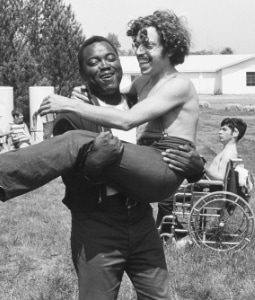
Crip Camp
A ground breaking summer camp galvanizes a group of teens with disabilities to help build a movement, forging a new path toward greater equality executive produced by President Barack Obama and Michelle Obama.
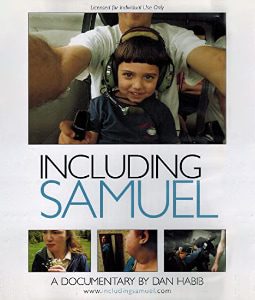
Including Samuel
Before his son Samuel was diagnosed with cerebral palsy, photojournalist Dan Habib rarely thought about the inclusion of people with disabilities. Now he thinks about inclusion every day. Shot and produced over four years, Habib’s award-winning documentary film, Including Samuel, chronicles the Habib family’s efforts to include Samuel in every facet of their lives. The film honestly portrays his family’s hopes and struggles, as well as the experiences of four other individuals with disabilities and their families. Including Samuel is a highly personal, passionately photographed film that captures the cultural and systemic barriers to inclusion.
Local businesses who understand the value of a diverse workforce bring us one step closer to becoming the most disability-friendly community in the country. We recognize people with disabilities whose work keeps our nation’s economy strong and reaffirms equal opportunity for all citizens. Diverse and inclusive opportunities are built from a naturally supportive culture – creating an environment of success for both the employee and employer.
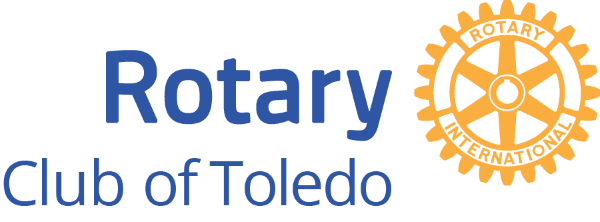
WORKING BETTER TOGETHER
The Ability Center, Goodwill Industries, Lott Industries, and the Epilepsy Center have come together in a partnership to support a job exploration and employment project that actively promotes individuals with disabilities as employment candidates to Toledo Rotary membership. Together these four organizations prioritize clients for work in the community and streamline communications by selecting one person representing all four organizations to coordinate the supports and resources needed for a successful placement. Fill out our contact us form for more information about this opportunity.
Disability Equality Index
The most comprehensive benchmarking tool for disability inclusion.
Welcoming Statement
Recruitment - For Employers
Recruitment - For Job Seekers
Employing People with Disabilities
Disability Discrimination
Disability discrimination occurs when an employer or other entity covered by the Americans with Disabilities Act, as amended, or the Rehabilitation Act, as amended, treats a qualified individual with a disability who is an employee or applicant unfavorably because he or she has a disability.
Legal protections available during this time can help many maintain employment, mitigate risk of infection from COVID-19, care for family members without losing employment, or in dire situations, maintain unemployment compensation until the public health emergency has passed. This resource is meant as a tool to set out the legal protections available to workers during this time.
Employer Resources
The Workplace Initiative helps companies recruit, hire and retain the largest untapped labor pool in the country – people with disabilities. This site showcases facts and case studies to show how disability inclusion drives business value. The Disability Employment and Inclusion Guide includes information needed to start or enhance your disability employment and inclusion program.
The DEI is a national, transparent, annual benchmarking tool that offers businesses an opportunity to receive an objective score, on a scale of zero (0) to 100, on their disability inclusion policies and practices.
The Disability Employment Tracker™ is a free, confidential company assessment that measures disability and employment policies and practices and includes a confidential section on veteran employment practice.
Working toward practical solutions that benefit both employer and employee, JAN helps people with disabilities enhance their employability, and shows employers how to capitalize on the value and talent that people with disabilities add to the workplace.
EARN is a free resource that helps employers tap the benefits of disability diversity. They educate public- and private-sector organizations on ways to build inclusive workplace cultures and empower them to become leaders in the employment and advancement of people with disabilities.
An Allegis Group Company, GettingHired is a recruitment solution dedicated to helping inclusive employers hire professional individuals and veterans with disabilities.
Established in 1995, AbilityJobs is the first online job board dedicated to connecting job seekers with employers—helping hundreds of thousands of qualified candidates with disabilities.
Ability Job Fair is the only online career fair with face-to-face video—including real time captioning, chat and sign language interpreters, providing the most accessible experience for job seekers with disabilities.
The Workforce Recruitment Program is a recruitment and referral program that connects federal and private-sector employers nationwide with highly motivated college students and recent graduates with disabilities who are eager to demonstrate their abilities in the workplace through summer or permanent jobs.
The LEAD Center is a collaborative of disability workforce and economic empowerment organizations dedicated to improving employment and economic advancement outcomes for all people with disabilities.
The Retaining Employment and Talent after Injury/Illness Network (RETAIN) is a program focused on an important dimension of disability employment: Stay-at-Work/Return-to-Work (SAW/RTW) Funded by the U.S. Department of Labor’s Office of Disability Employment Policy (ODEP) in partnership with the Employment and Training Administration and Social Security Administration, the program is engaging eight state teams in a series of demonstration projects focused on helping workers stay at or return to the workforce following an illness or injury.
TBTL is a public-private network that works to increase employment for qualified job seekers with disabilities. Provides business-specific tools to promote hiring of people with disabilities and best -practices at doing it
is a consulting company assisting corporation and organizations in the management of inclusion and diversity in the workplace. Hire Disability Solutions helps to simply the hiring process through alliances with the right organizations, people and technology.
created in 1953, the SBA is the only cabinet level federal agency fully dedicated to helping small business owners and entrepreneurs pursue the American dream. SBA has good resources on how to hire individual with disabilities starting from how to create a culture of inclusivity and including financial incentives.
The Workforce Solutions toolkit is developed using the U.S. Department of Labor’s Office of Disability Employment Policy as a source. This toolkit highlights additional employer benefits associated with hiring persons with disabilities.
a national nonprofit organization dedicated to helping adults understand the importance of having alternative sources of income for times when they can not work, has resources to showcase how businesses benefit from hiring people with disabilities.
Funded by the U.S. Department of Labor’s Office of Disability Employment Policy, the CDE is a collaborative effort among several disability and business organizations that is working to change attitudes about disability and employment.
Opportunities for Ohioans with Disabilities
Training
The Interviewer is an award-winning inclusive short film, made through our Bus Stop Films, filmmaking program. The film was devised with 12 people living with disability, all of whom actively participated in the development of the film and were mentored through the process of making the film with professional mentor
Podcasts
That’s Opportunities for Ohioans with Disabilities! And we welcome you and Jacob to our first episode of National Disability Employee Awareness month. Not to overstate this, but Jacob could help you retire your NOW HIRING sign. By Thinking Differently, and seeing there are fewer challenges than you may think to hire someone with a disability, you will open your pool of potential employees in a large way. Also, one of the many statistical nuggets Jacob has, is that some studies will support the fact that retainment levels for employees with disabilities are HIGHER than those without. We will explain!
Thanks to spotting a story from WTOL’s Tatiana Cash, we were able to get a tasty visit with Danielle Doxsey, co-owner of the Culver’s in Findlay, and her employee Kris DePuy. Unlike many places, especially in the restaurant business, Danielle hasn’t had any staffing issues in recent times. In fact, she has a waiting list of people she can tap into for employment. I assure you it has nothing to do with the renowned Culver’s butter burgers. As you’ll hear, it’s more about her wide spectrum of who she’s happy and excited to have on her team.
Options for Tomorrow
Project by Lucas County Board of Developmental Disabilities
A future care planning project preparing you for all of life’s challenges
What would you do if your caregiver passed away or was no longer able to provide care? We help you plan for such contingencies so you can make informed decisions no matter what life brings. The program covers:
Financial Planning
Family Handbook
Emergency Planning
Legal Planning
Legacy Letter
The goal of the Options for Tomorrow Project is to facilitate the development of future care plans for adults with disabilities by providing resources and services that empower families and care partners. This project is provided by the Lucas County Board of Developmental Disabilities.
The Options for Tomorrow Care Plan helps families avoid having to react in a crisis by planning early and making informed decisions that are the consensus of all members involved. In the event a caregiver dies, or is no longer able to provide care, a plan is essential in guiding others to consistently meet the needs of the individual with a disability in the following key areas:
There are many types of trusts available that you can fund in a variety of ways, including insurance. To ensure that you receive the best advice, please meet with a certified financial planner. Below is a list of things you should consider when speaking with a planner.
- Make sure you have adequate life and health insurance for yourself and your spouse
- Determine the extent to which your son or daughter can be self supporting
- Become familiar with the waiver programs and Medicaid program for people with disabilities
- Revise any revocable or time-limited trusts set up while your children were minors
- Consider how to manage or dispose of your non-liquid assets, such as your house or other property
- Consider the advantages and disadvantages of transferring some of your investments or savings gradually as gifts to your heirs, directly in trusts
Reviewing your Assets
After estimating your child’s needs, you need to review and organize your own resources. Identify and list your assets. Assets include such items as cash, homes, business interests, bonds, pension annuities, retirement accounts, other real estate, bank accounts, stocks, automobiles, life insurance, land and jewelry.
Family Handbook an Overview of Planning
- Future Care Planning helps families to review and inventory the needs and strengths of their family members, determine what should be in a plan and locate qualified professionals and resources to finalize the plan.
- Future planning involves more than just financial and legal planning. You must consider living arrangements, educational programs, employment, meaningful daily activities, leisure time activities and other personal needs.
- The individual with the disability should share in developing the plan to share hopes, dreams, and visions of his/her future life. This ensures self-directed planning and self determination.
- Planning is an ongoing, dynamic process with changes and necessary updates.
- As you age, you should prepare your child for the eventuality of your death or illness. You may want to name in your will a guardian to succeed you. The court will need to appoint that person if they agree that it would be beneficial for the ward.
- Develop a Plan of Action to engage your family in future care planning.
- A good plan is comprehensive.
Emergency Planning and Support
- Make your personal or family plan. If you need support during an emergency, include the people who will help you.
- Have an emergency contact list with numbers and alternative methods of contact.
- Who should step in for short term or long term help and should they contact a specific agency for help?
- Gather and store important papers, documents and emergency health information in an accessible place.
End of Life Arrangements
- Make sure that you have an up to date will.
- Make funeral arrangements for yourself and other family members and consider pre-paying those arrangements.
- An attorney can also be an essential part of good planning.
- Determine the whether or not you need a guardian for your child with a disability.
- Will you decide to be a guardian for your child, or ask someone?
- Recruit a successor guardian and name them in your will to take over as guardian when you die.
- Review and update your will at least every three to five years.
- Make sure that you have advanced directives such as a Living Will, a Health Care Power of Attorney and possible Financial Power of Attorney for yourself.
- As you age, you should prepare your child for the eventuality of your death or illness. You may want to appoint a co-guardian so there is no gap in decision making.
A legacy letter is a document that encapsulates your wishes for the future. It can:
- Include your child’s hopes and aspirations discovered through discussions with your child.
- Include your child’s life-likes, dislikes, routines, rituals and traditions.
- Help prepare future guardians and successors for their roles.
- Help them learn the systems, routines, and values that you developed, found effective and want to sustain.
- Ensure that future caregivers and family members know the vision and embrace it if they are involved.
- Provide continuity of care after you are gone or when you are unable to provide care giving.
We are currently accepting new families who have an adult child with a disability. There is no charge for the program, but The Ability Center does accept donations. A planning specialist will make initial contact by telephone and meet with you to clarify background information and specific needs.
If the caregiver agrees to proceed, the planning specialist will develop, deliver and review an individualized care plan. It is our intention to collaborate with existing services and to provide lists of resources for necessary service providers. Since the care plan is a continual process and a legacy of love, the planning specialist will follow-up every 3, 6, 12, 18 and 24 months.
MORE INFORMATION:
Michelle Turner, Lucas County Board of Developmental Disabilities
Benefits
Telehealth
Medication
Medication Safety Awareness for the Blind, also known as MSAB, is an initiative to keep people safe by spreading the word about accessible prescription labels. Many pharmacies offer these labels for free, but many of the 14 million Americans who are blind, visually or print impaired still don’t know about these options. Learn more and sign up as an advocate today HERE or sign up for Accessible Prescription Labels HERE.
Health Insurance Providers
Ohio Senior Health Insurance Information Program (OSHIIP)OSHIIP provides Medicare beneficiaries with free, objective health insurance information, one-on-one counselling, and educates consumers about Medicare, Medicare prescription drug coverage (Part D), Medicare Advantage options, Medicare supplement insurance.
Civil Rights Resources
WEBINAR: Emergency planning/preparedness and its impact on people with disabilities will be discussed by Valerie Novack, Disability Policy Fellow, Disability Justice Initiative from the Center for American Progress.
WEBINAR: Community Partnership Award Winner: Hospital Council of Northwest Ohio will discuss their collaboration with The Ability Center on the revision of guidelines for resource allocation for people with disabilities in response to the COVID-19 pandemic.
WEBINAR: Panelists discuss how access has changed, for both better and worse, from a cross-disability perspective, during the COVID-19 pandemic.
COVID-19
Hear from our Executive Director Roberta Carlin about being a Self Advocate during COVID-19!
AAHD Director of Public Health Programs Karl Cooper discusses what federal laws are in place to protect people with disabilities from possible rationing of care due to disability status.
Social Security 101
Facebook Live Webinar presented on January 12, 2022 by Erin Thompson, Public Affairs Specialist with Social Security.
Handouts
Multimedia
The Olmstead Decision is the most important civil rights decision for people with disabilities in our country’s history. This 1999 United States Supreme Court decision was based on the Americans with Disabilities Act. The Supreme Court held that people with disabilities have a qualified right to receive state funded supports and services in the community rather than institutions.
Essays
- Understanding Social Circles
- The Process of Cultural Shifting
- The Need for Inclusive Communities
- Ideas to Build Community
- Five Star Quality Defined
- Community and Social Capital
Disability Advocacy Seminar Series
Rent/Home Ownership Resources
Families in need of decent and affordable housing purchase a new or rehabbed home here in Lucas County through a 0% interest loan. Habitat for Humanity can also assist with home repairs.
They work to create opportunities for lower-income people to live in affordable homes in safe, sustainable neighborhoods that are healthy places for families to grow.
Lucas Metropolitan Housing Authority (LMHA) continues to provide affordable housing to adults, seniors and children in its Public Housing, Housing Choice Voucher, Mixed-Income and market rate housing units.
List and search for Ohio rental housing, including units that are affordable, accessible, serve seniors, lead safe, and more.
Accessible Design
An evaluation document for One, Two, and Three Family Dwellings covering residential requirements in the following areas: 1) Exterior; 2) Doors, Entryways, Hallways; 3) Bathrooms; 4) Living Space; 5) Functionality / Environmental Controls; 6) Public Access and Common Spaces; and 7) Parking.
Housing Self-Advocacy
If you have questions about the standards needed to build your ramp, or if you need to request a reasonable accommodation, contact the Toledo Division of Building Inspection at 419-245-1220.
The booklet covers protections for people with disabilities in residential neighborhoods under the Supreme Court decision of Olmstead v. LC, in zoning and neighborhood planning, and under state and local visitability laws. To request a presentation, please visit this page.
The Federal Fair Housing Act (FHA) is a federal law that prohibits discrimination in housing. One of the many protections of the FHA is the right of individuals with disabilities to request a reasonable accommodation in the rules, policies, practices, or services of a housing provider.
Service Animals Rights in Housing
Financial Assistance
Directions Credit Union’s Ability Loan Program helps people with disabilities obtain loans at below-market rates and for longer terms. You can get the loan for home accessibility projects or for assistive technology, modified vehicles, and other mobility aids. Visit the Directions Credit Union or call (888) 508-2228 for more information.
Zoning
Amending Toledo Municipal Code (TMC), Part Eleven, Subsection 1106.0205; Planning and Zoning to address accessibility issues; and declaring an emergency. View fact sheet here.
School Resources
Area Agencies
The Autism Provider Network of Northwest Ohio (APN) brings together highly experienced professionals that have a passion for working with the diverse and growing population of those living with Autism Spectrum Disorder (ASD) in Northwest Ohio.
DSAGT is a 501 C-3 non-profit organization established in 1983 that has evolved from a small support group in the basement of parent’s homes, to a continuously growing organization, meeting the changing needs of individuals with Down syndrome and their families.
Deaf Services Center, Inc. (DSC) empowers those faced with language barriers by promoting access to communication.
The mission of the Epilepsy Center of Northwest Ohio is to improve the lives of people affected by epilepsy and those with developmental disabilities.
Group for all those affected by a Spinal Cord Injury in and around Toledo, Southeastern Michigan, Cleveland, Columbus, Dayton and Cincinnati. Whether you are newly injured, a veteran, a family member or even friend of someone that has been injured.
The Sight Center offers a unique blend of programs and services that can help people of all ages work, learn, play, and live independently with permanent vision loss.
Activities at Home
Activities in the Community
Therapy dogs offer support and companionship to children and adults with disabilities. They meet therapeutic goals including improving speech, coordination, and social skills. Therapy dogs are placed in individual’s homes or in school districts.
Agility Angels uses the sport of dog agility to help individuals diagnosed with Autistic Spectrum Disorder develop social skills,
physical abilities and self-confidence.
Inclusive playground project in Perrysburg, Ohio
iDance adaptive classes are built for all differing abilities. Hip-hop, tap, and combo levels 1-4 classes available.
Metroparks Toledo staff can adapt many programs to be accessible to anyone who would like to participate.

Glasscity Riverwalk
TARTA
TARPS
Self-Advocacy Resources
A series of topic guides providing technical assistance for transit agencies, riders, and advocates on the Americans with Disabilities Act (ADA) and transportation: 1) Equipment Maintenance; 2) Stop Announcements and Route Identification; 3) Eligibility for ADA Paratransit; 4) Telephone Hold Time in ADA Paratransit; 5) Origin to Destination Service in ADA Paratransit; 6) On-Time Performance in ADA Paratransit; and 7) No-Shows in ADA Paratransit.
In recognition of the critical role that service animals play in the independent travel of people with disabilities, this document was developed to answer some frequently-asked questions on the Americans with Disabilities Act and the rights and responsibilities of people traveling with service animals. It also addresses policies and practices of transportation providers, going above and beyond the ADA’s regulatory obligations to provide good customer service.
Overview of Requirements: The Americans with Disabilities Act (ADA) applies to both public and private ground transportation providers. The ADA rules that apply to transportation are regulated by the U.S. Department of Transportation.
Includes Required items as well as Universal Design/Best Practice Recommendations in the following categories: Boarding and Alighting Areas, Bus Shelters, Benches, and Signage.
Learning to Drive
Includes name of School or organization, contact information and other requirements.
University of Toledo Engineering Collaboration
“It’s exciting to give back to the community in such a creative way. Making life easier some people with disabilities and seeing everything come together is why we chose engineering in the first place. I had a great experience working with The Ability Center.”
Collin Mccabe

UT Senior Design Students looking for Disability-Related Projects
The Ability Center collaborates with the University of Toledo and its Senior Design Program to help area citizens with disabilities solve independent living problems through technology and innovation. These are typically projects that develop products unique to the needs of an individual, perhaps creating something that does not currently exist in the marketplace, like a dog treat dispenser for someone with limited use of the hands, or a device for lifting a walker into a car trunk.
Adaptive Engineering Design Projects
An adaptive design project can be something to assist in the workplace, school, or the community. All materials are the responsibility of the Engineering Department. Examples of previous projects:
- A scooter converted into a golf cart for a youth individual
- A walker lift for a hatchback car
- A riding lawn mower converted with hand controls
- An art table that connects to a wheelchair
If you have a need or an idea for a project that could benefit individuals with disabilities, please contact us.
Disability Special Enrollment
A process that allows you to enroll in Medicare Part B outside of an enrollment period without penalty. The D-SEP is also called the “OBRA 93 process”

